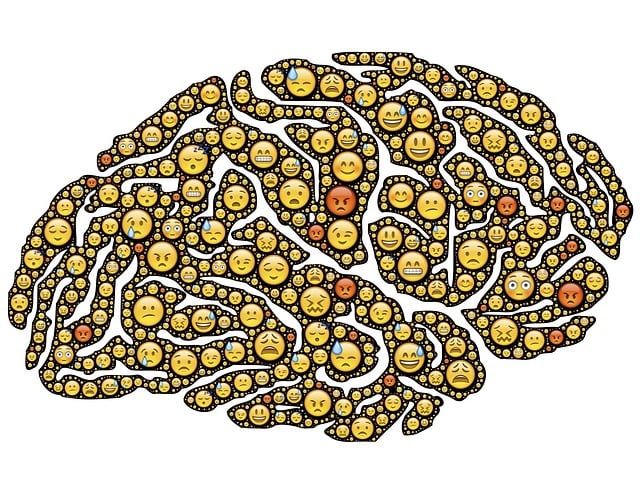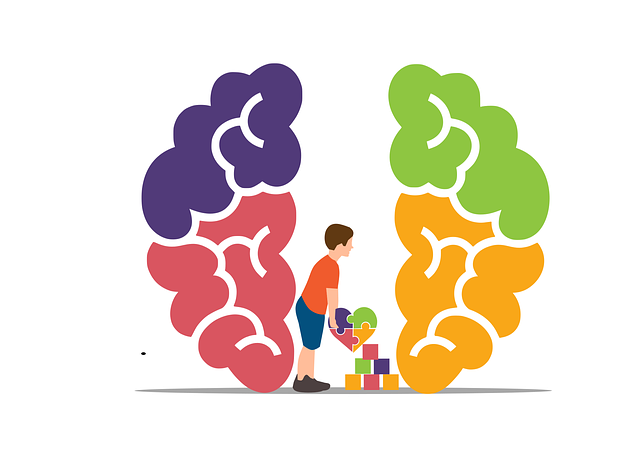Longmont Family Counseling Therapy (LFCT) emphasizes needs assessment as a key step in designing tailored mental health education programs. By gathering feedback from employees and clients through surveys and focus groups, LFCT identifies areas needing attention, such as well-being promotion, supportive work environments, and burnout prevention. The goal is to create a healthier community within the healthcare setting, addressing diverse mental health needs—including stress, anxiety, depression, and PTSD—especially for culturally diverse residents with limited access to resources. Interactive programs focus on coping skill development, positive thinking, conflict resolution, and resilience-building, ultimately enhancing emotional well-being and open conversations about mental health in Longmont.
In the heart of the Longmont community, mental health education programs play a vital role in fostering well-being and resilience. This comprehensive guide explores the strategic design of such initiatives, from identifying unique local challenges to implementing effective curriculum and ongoing evaluations. By delving into evidence-based practices, engaging cultural perspectives, and practical logistical planning, including marketing strategies for Longmont Family Counseling Therapy, this program aims to empower individuals with knowledge, skills, and attitudes that promote mental health and cope with common issues.
- Assessing Needs and Setting Goals for Mental Health Education
- – Identifying target audience and their unique mental health challenges in the Longmont community.
- – Defining program objectives: what knowledge, skills, and attitudes do participants need to acquire?
Assessing Needs and Setting Goals for Mental Health Education

Assessing needs is a crucial step in designing effective mental health education programs, especially at institutions like Longmont Family Counseling Therapy. By evaluating the current state of employees’ and clients’ emotional well-being, practitioners can identify specific areas requiring attention. This process involves gathering feedback from individuals within the healthcare setting to understand their challenges, concerns, and aspirations related to mental health. For instance, surveys or focus groups can be organized to explore stress levels, burnout prevention strategies for healthcare providers, and existing mood management techniques they find helpful.
Setting realistic goals is an integral part of this process. Based on the assessed needs, educational programs can be tailored to address particular issues. Goals might include improving emotional well-being promotion techniques, fostering a supportive work environment, or equipping staff with enhanced burnout prevention strategies for healthcare providers. Ultimately, these efforts aim to create a more resilient and healthy community within the healthcare setting, benefiting both the professionals and those they serve.
– Identifying target audience and their unique mental health challenges in the Longmont community.

In the vibrant community of Longmont, understanding the unique mental health landscape is key to designing an effective education program. The target audience primarily comprises residents facing diverse challenges, from stress and anxiety to more severe conditions such as depression and PTSD. Many individuals in Longmont, especially those from diverse cultural backgrounds, may have limited access to mental health resources, hindering their ability to seek support. This community-centric issue underscores the need for tailored interventions that cater to the specific needs of Longmont families.
By focusing on the local context, the program can integrate relevant strategies, such as teaching conflict resolution techniques and resilience-building activities, to empower individuals and families with coping mechanisms. The development of mental wellness coaching programs specifically designed for Longmont’s cultural fabric can foster a sense of belonging and encourage open conversations about mental health. Such initiatives have the potential to revolutionize access to care, ensuring that every resident has the opportunity to enhance their mental wellness, including those who may traditionally face barriers to seeking counseling therapy in Longmont Family Counseling settings.
– Defining program objectives: what knowledge, skills, and attitudes do participants need to acquire?

In designing a mental health education program like that offered by Longmont Family Counseling Therapy, establishing clear objectives is paramount. The primary goal should be to equip participants with practical knowledge, skills, and attitudes that promote emotional well-being and foster positive thinking. This involves teaching coping skills development techniques tailored to daily life challenges.
The program should aim to enhance participants’ understanding of mental health concepts, enabling them to recognize and manage their own and others’ emotional states effectively. Through interactive sessions, learners will acquire tools to navigate stress, anxiety, and other common mental health issues. Emphasizing positive thinking as a coping skill is key; it encourages a proactive approach towards emotional well-being, fostering resilience in participants.
In designing a mental health education program tailored for the Longmont community, focusing on the needs of diverse individuals through identifying specific challenges is crucial. By setting clear objectives centered around knowledge acquisition, skill development, and attitude transformation, programs like those offered by Longmont Family Counseling Therapy can empower residents to navigate their mental well-being effectively. This strategic approach ensures that education remains relevant, accessible, and impactful for all participants.














